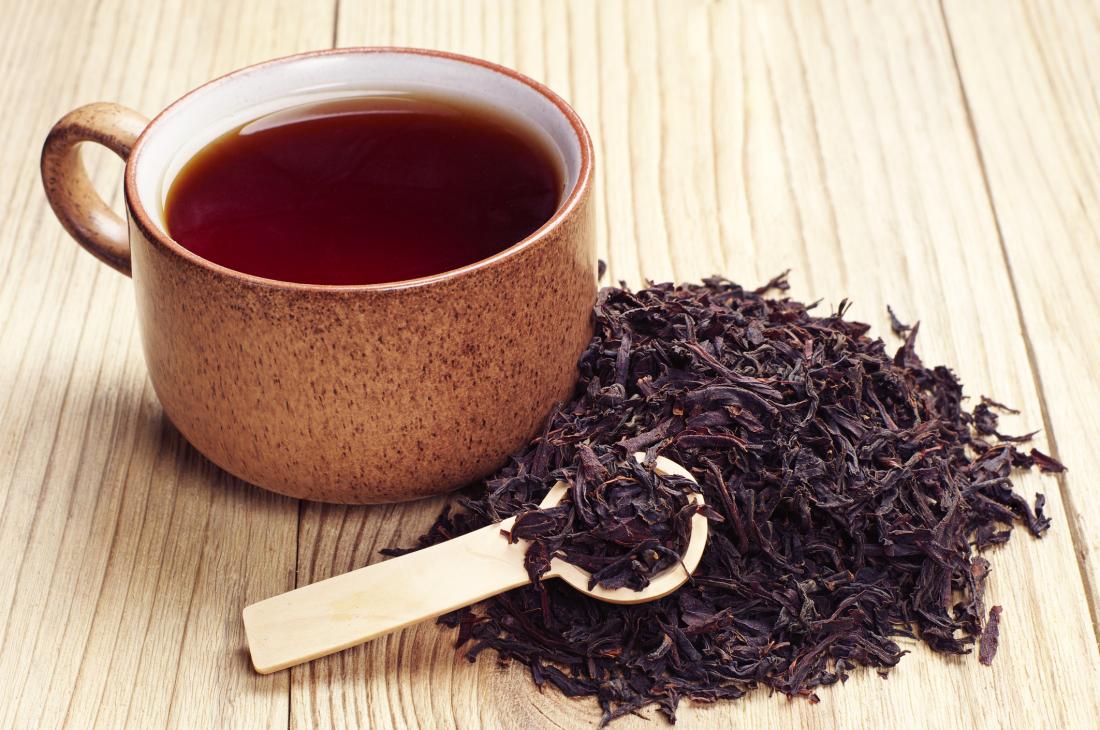How “Black Tea” Makes You Healthier?

With so many tea varieties to pick from, where will you start on? Here you’ll travel around the varieties of “Black tea”, how it varies from its close cousins: green, white, red, as well as oolong tea. Then let’s go a little deeper into the well-accepted health benefits and declarations being formed these days.
To begin with, let’s catch the eye on what black tea really is. It is derived from the plant Camellia sinensis, originally found in China. The hilarious thing is in China it is not called black tea, but red tea. But outside China, on the other hand, red tea refers to the red South African herbal tea (also appetizing and very useful) called rooibos.
What is Black Tea?
Believe it or not, black tea is in fact the same as white and green tea, the only dissimilarity is it is fermented, or oxidized. Black tea accounts for 90% of all the teas consumed in the West.
In the world of teas, fermented implies that the tea leaves have undergone oxidation. The tea leaves subsequently get converted to a darker colour. For this reason, in the West it is named as black tea. It appears red in colour when it is brewed.
Now about the health benefits of Black Tea!
Black Tea Benefits for Stress and Anxiety
As per the University College London professor Andrew Steptoe, “The intake of black tea may accelerate your recovery from every day stresses in life.” In this study, black tea lowered the stress levels and increased relaxation in this group. The subjects were divided into two groups: one group consumed black tea while the other took fake tea or a placebo caffeinated drink with none of the active principles of tea. They were subjected to tasks that directly strained their stress, heart rate, as well as pulse.
The levels of cortisol, a hormone formed in the adrenal cortex as a response to stress, in black tea consumers dropped drastically quicker as compared to the group drinking the placebo tea. They also reported higher levels of relaxation after the tasks finished. In addition to this, researchers observed that black tea consumers had lower levels of blood platelet activation. Blood platelet levels are directly associated with the formation of blood clots, which augments the risk for heart attacks. Although black tea cannot prevent the stress experienced, “it assists to bring the stress hormones back to normal”.
Black Tea Benefits for Weight Loss
Polyphenols are a set of phytochemicals – there are over 500 of them. They are antioxidants that defend the cell structures such as DNA and cell membranes. Moreover, they are known to shield you from the destruction resulting from free radicals and are identified to promote the metabolic processes. When consumed, they get absorbed into your bloodstream as well as the body tissues in order to modify the way your liver metabolizes energy as well as promotes weight loss. Black teas are prebiotics, known to stimulate the growth of good microorganisms that adds to an individual’s well-being.
Black Tea Benefits for Cancer Prevention
Research studies have found that antioxidants, particularly polyphenols, theaflavins as well as catechins, can be a powerful force in preventing and possibly mitigating the spread and development of cancer.
Antioxidants are substances helpful for preventing or prohibiting the oxidation of useful molecules in our bodies. Both free radicals as well as anti-oxidants are produced in our body. They are basically conflicting forces present within our bodies that should be balanced to preserve health. Free radicals are thought to be highly reactive, owing to an unpaired electron which continuously looks for (often antagonistically) another electron in order to find equilibrium. Antioxidants have that additional electron and counteract the otherwise destructive effects.
Drinking black tea is known to lower the cancerous tumours in breast, prostate, stomach, lung, as well as ovarian cancer. The symptoms point to the benefits of antioxidants existing in black tea in order to absorb free radicals. In addition, observations in laboratory studies on animals have found that black tea and green tea are also related with prevention and decelerating the growth of cancer cells in breast, colon, liver, as well as prostate cells.
Black Tea Benefits for Diabetes
Black tea cannot treat diabetes but it may assist with some of the signs that develop from it, including dehydration. Various studies have shown that black tea is useful to both lower down the levels of blood sugar and reduce diabetic cataracts. In addition, human studies have exhibited a decrease in raised blood sugar levels.
Black Tea Benefits for Diarrhoea
Diarrhoea, the second most familiar ailment, can be mitigated by means of the tannin content present in black tea, where they exist in great quantity. Dehydration from too much diarrhoea is a reason behind concern. Since it can continue more than one instance and drains your body of large quantities of fluid, staying hydrated remains all the more important. A good way to do this is to drink black tea. It is composed of all the essential nutrients as well as fluids that help replenish your body’s resources.
How black tea influences your blood sugar levels and cataracts?
Various research studies have reported that polysaccharides are accountable for inhibiting the process of glucose absorption. When interrupted by antioxidants present in black tea, there is immune boosting as well as antihypertensive properties. Scientists also reported that alpha-glucosidase, the enzyme responsible for converting starch to glucose gets inhibited by drinking black tea.
Black Tea Benefits for Headaches
There are different types of headaches, based upon the underlying cause; and black tea is a great help. If you are experiencing a tension headache, black tea considerably help to lower down the stress faster than standard painkillers. Though, a majority of caffeinated drinks narrow down the capillaries in your brain, resulting in headaches. The antioxidants in black tea are well-identified to help you relax.
If you are inclined to caffeine headaches and slurp coffee as well as caffeinated sodas, then black tea might not be your answer since it is constituted with caffeine. Antioxidants are not frequently present in caffeinated sodas; however they are present in coffee. It is significant to be acquainted with the underlying cause of your headache, which is to consider if black tea is a help for you.
Black Tea Benefits for Parkinson’s disease
Many statements are prepared in relation to black tea and a lower risk of developing Parkinson’s. Research study has shown that shows that 70% of people who consumed black tea on a daily basis were less likely to develop Parkinson’s disease.
Black Tea Benefits for Oral Health
Research shows that “the compounds in black tea have the ability to attack the damaging bacteria present in your mouth that are a reason for gum disease as well as cavities.” It was also found that “compounds in black tea were able to kill or suppress the growth and acid production of cavity-causing bacteria in dental plaque.”
You Just Need to Reap the Benefits of Black Tea!!!
Whether you brew black tea yourself or purchase it from a café, spend a moment to draw in its matchless aromas. See if you can make out by aroma the delicate tones of the diverse areas. Rather than nullifying the flavour with sugar or dairy, give it a try of using citrus peels or fruits in order to augment the flavour.

An intact new world is waiting for you if you are yet on the ride to the exotic land of “black tea”. And, let me tell you black tea is only one stepping stone into a plentiful universe of nature’s remedies. As the steam ascends from your next cup, and possibly coats your glasses a moment, give a pause and memorize how much good you are doing for your body with each sip.



